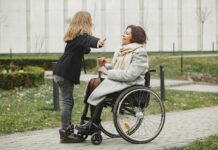When COVID-19 restrictions were put in place, almost everyone across the globe felt social isolation, or loneliness.
However, even before the pandemic, loneliness was commonplace for many older adults. Prior to the pandemic, around 20% of older adults in Canada reported experiencing loneliness some or most of the time, but when the pandemic hit, feelings of loneliness increased significantly among older adults living across Canada.
Social isolation has many negative effects on older adults’ physical and mental health. Although interventions have been designed to increase social inclusion among older adults, no concrete or effective strategies have been identified to make older adults feel more connected and less lonely.
In 2015, the Montreal Museum of Fine Arts (MMFA) carried out an arts-based workshop series for older adults that was found to improve well-being, quality of life, and health conditions in healthy older adults.
A virtual social inclusion study for older adults
To build on these findings, and due to the pandemic, a team of researchers decided to examine whether virtual MMFA activities would have similar positive effects on older adults’ (≥65 years) feelings of social inclusion as the in-person MMFA activities. This new study was led by Dr. Olivier Beauchet, Full Professor in the Department of Medicine at McGill University, in early 2022 and published in Frontiers of Medicine in August 2022.
For three months, the study’s experimental group attended twelve 45-minute virtual MMFA tours with the same eight participants. Each tour included a presentation of museum objects (e.g., paintings, sculptures, and decorative pieces) and a spoken tour with a trained museum guide, followed by an open-ended discussion with the other participants and the tour guide.
The control group, on the other hand, did not attend any virtual tours and the participants were asked not to take part in any arts-based activity for the duration of the intervention.
Before and after the intervention, both the control and experimental groups completed assessments on their feelings of social inclusion and subjective mental and physical health.
What was found?
The researchers found that before the intervention, there were no significant differences between the experimental and control groups’ self-perceived social isolation.
After the three-month intervention, however, the experimental group felt significantly less socially isolated compared to the control group. Furthermore, within the experimental group, feelings of social isolation were decreased and self-perceived mental and physical health increased after the three-month intervention.
Thus, the activities included in the study’s intervention were demonstrated to be effective in increasing feelings of social inclusion, as well as physical and mental health, among older adults.
What made the intervention successful?
Three important strategies were included in the intervention which the researchers believe led to its success.
Firstly, the museum tours were goal-oriented and ongoing, making them meaningful for the participants. Secondly, the tours were group-based, encouraging communication and interaction with others. Lastly, there was a creative/cultural component incorporated into each tour which has been demonstrated to evoke positive emotions among lonely individuals.
Where to go from here?
These findings are not only exciting for developments in aging research, but also for older adults who are unable to leave their homes and still want to feel socially connected to others.
Beauchet and his colleagues were able to demonstrate that virtual cultural interventions have similar effects on perceived social inclusion as in-person cultural interventions.
Hopefully, the three successful strategies used in this study will encourage the development of social inclusion activities for older adults. In turn, this could help decrease reported loneliness among this population in Canada.








































